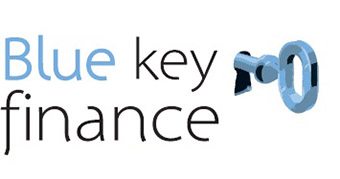First time auction tips and tricks
Savvy buyers will know to keep their auction techniques well-honed. The following are my top tips for buyers wanting to get the best possible results when purchasing at auction.
Research
It is important to research the market in which your property pf interest is located, as there are a number of key factors to look out for than can affect a property’s long-term value.
To start with, try to view several properties in the area to ascertain the buying environment within the local market. Aim to get a good understanding of what stock is available and what properties have recently sold (and for how much).
It is also important to consider amenities such as public transport, educational facilities and shopping centres. Geographical factors, such as surrounding noise and the aspect of the property, will be important also.
Finally, do some research into the body corporate if you’re looking at a unit, or the land size and age if you’re going for a house.
Get a feel for auctions
It is wise to observe other auctions in the area before going in to bid on a property. Doing so will not only allow you to get a feel for how auctions are conducted generally, but it will also provide you with exposure to different auctioneers – one of whom may be the auctioneer on the day you decide to bid.
Make your interest known
If you come across a property you’re interested in buying at auction, make sure to let the selling agent know of your intentions. Some buyers try to be secretive about their intentions and end up being disappointed when the property sells prior to auction.
Ask the agent to provide a sale contract for your Solicitor or Conveyancer to review, go back to the property for a second and a third inspection, take measurements and, if necessary, get a building inspector or builder to examine the property.
Get preapproved finance
If you are planning to bid at a public auction, it is important to make sure that you have your finance preapproved before auction day. A 10 per cent deposit is usually required for auction buys, unless arranged otherwise, and you will need to have a personal cheque, bank cheque or deposit bond (if acceptable) to pay and exchange on the day.
Know your limits
Buyers at auction generally fall into two main categories – those who are bank limited (approved up to a certain amount of money) and those who are self-limited (those who have a self-imposed limit that they will stick to).
Often, success or failure at auctions comes down to the last one to two per cent of bids, so try to maintain a degree of flexibility as to how high you’ll go. The last $5,000 to $10,000 is where most buyers fall short.
In saying that, it’s equally important to stay level-headed and avoid bidding beyond what you perceive the property to be worth.
At the end of the day, there will always be more properties, and you stand a better chance of making money in the long-term if you buy at the right price.
Have a game plan
Be prepared with a game plan for bidding – that is, know when you’d like to begin bidding, what the sale price is likely to be, and what your price limit is.
Strong bids can be used to intimidate other bidders, and shut down the auction process sooner rather than later. As such, it is often of benefit to make strong and decisive bids.
For example, if the majority of bidders were raising their offers by $1,000 increments, you might look to increase your bid by $5,000.
It is also important to remain in good eyesight of the auctioneer to ensure that they can see you during the auction. Remember, once the gavel goes down, the property is sold and the auctioneer cannot accept additional bids – so make yourself visible. Three commonly used bidding strategies include:
- Coming in and bidding strong from the outset, removing some of the competition immediately and getting yourself into the bidding and box seat early.
- Coming in late right towards the end (can be risky); and
- Bidding in odd increments to try and slow the bidding down.
Registration
You must have a driver’s license or passport on hand to register as a bidder. Generally, the terms you are bidding under will be displayed on your bidding card, and most auctioneers will supply you with a bidder’s guide.
At a residential auction, the terms of auction must be on display. Your bidding card is important as the auctioneer will need to cite it in order to accept your offer.
If you have a lucky or favourite number that you’d like to bid with, you may be able to do so, provided you get permission from the agent first.
It is also important to arrive at the auction well in advance to register and be ready to bid when proceedings commence. You can register during an auction; however, it is advisable to do so beforehand. Also, remember that registering doesn’t mean you’re obligated to bid.
Be in it to win it
The adage “you need to be in it to win it” rings true when it comes to auctions. Don’t sit on the sidelines and miss out on your dream home or a prime investment because you are too scared or tentative with your bids.
Positive body language and strong firm bidding are essential to coming up trumps on auction day. Generally, if a prospective buyer looks or acts weakly, a strong bidder will secure the property – so try to be confident and decisive.
Settlement
Once you have secured a property at auction, contracts will be signed immediately and a deposit will need to be paid.
Standard settlement periods are 42 days; however, this period can be varied to 60 or 90 days depending on the vendor’s circumstances. As soon as these dates have been arranged, it is wise to start planning your move or getting the property ready for tenancy.
Stay calm
It is important to remember that you have three opportunities to buy your property – before, on, or after auction day. Keep this in mind throughout the auction process to ensure you don’t pay a price well above your limits, whether self or bank imposed.
The worst-case scenario is that you will have to move to keep looking in the market, but don’t make a premature or irrational decision because you let stress get the better of you. Taking a friend or family member along can be a good way of remaining calm and remembering your priorities. Having a seasoned property buyer or investor bid for you could be another helpful strategy. It may also be an idea to have someone bidding for you on the phone, so you’re not showing any first-time nerves.
Enjoy the moment!
If you haven’t already, click on any of the below links to download our FREE E-Book or email us instead and we’ll send it to you within 24 hours.




Leave a Reply
Want to join the discussion?Feel free to contribute!